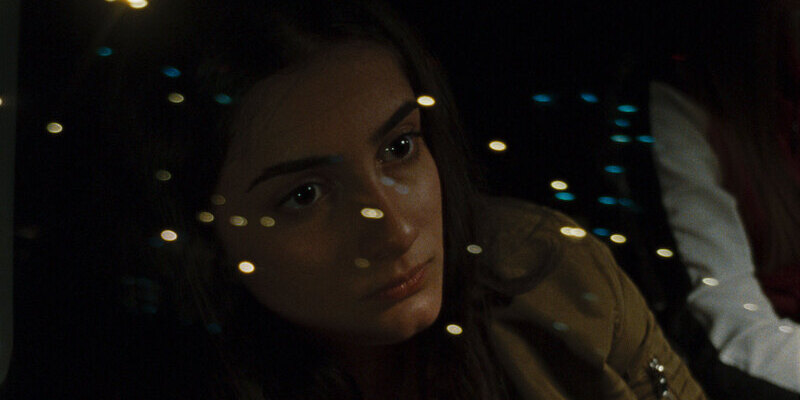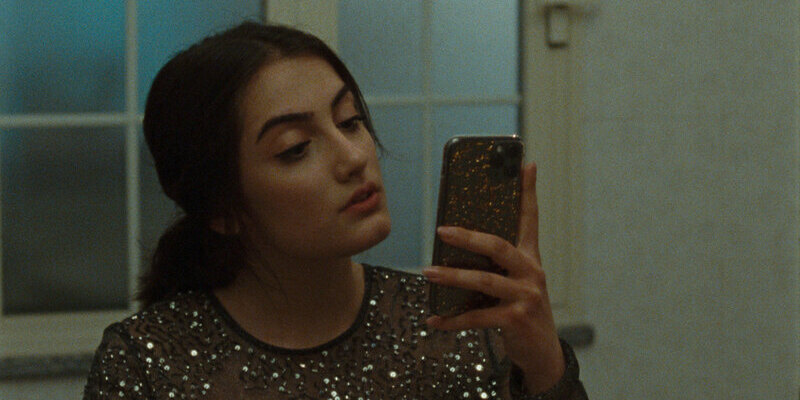
Review by
Benjamin Poole
Directed by: Jonas Carpignano
Starring: Swamy Rotolo, Claudio Rotolo, Grecia Rotolo, Carmela Fumo

A cliché of the crime film, especially those which feature links to Italy,
is the prevailing trope of ‘family’: familial honour, familial bonds, the
aggrandizing implication that whatever wrongdoings are enacted in the name
of family are forgivable, and are, in fact, laudable. This always sort of
annoyed me, the glib glamourisation of bullies and criminals, who, when
contextualised within heteronormative nuclear families, are somehow
reconsidered as noble and aspirational. Do me a favour. These people are
the absolute worst! Facilitating their greed and will to power with
intimidation and violence and exploitation: a superstitious and cowardly
lot, indeed. Refreshingly, Jonas Carpignano’s
A Chiara reviews the trope of the Italian crime clan,
looking at the fallout of organised criminal activity as it affects a
kingpin’s family, in particular the titular Chiara, a 15-year-old school
girl (Swamy Rotolo) whose old man (Claudio Rotolo - yes,
they are real life father and daughter) has gone on the run after being
fingered by the law.

Apparently, Carpignano’s method was to work with the amateur actors of the
Rotolo family using an enigmatic, discrete manner: giving each performer
only the most scant information for a scene in order to elicit a
spontaneous, natural performance. Thus, A Chiara has high
levels of verisimilitude in its opening scenes as it immerses us in
Chiara’s world via non-causal sequences of her at the gym, the dinner
table, applying makeup. It’s all well and good, and the chemistry between
family members has a rare authenticity, but the approach is very
indulgent. A Chiara’s opening sequences, aside from the occasional enigmatic nods towards
the forthcoming second act revelation, are essentially a presentation of a
teenage girl’s rather quotidian lifestyle. There is an abiding sense that
representing a person’s daily presence is entertaining enough in itself:
this is meant to be narrative cinema, not Instagram.

Although, A Chiara hardly has the gloss which said platform
connotes. For all his crime affiliations, Mr Rotolo’s family abide on top
of one another in a cramped flat and live a rather utilitarian lifestyle.
Not that Chiara, or us, are meant to be initially aware of dad’s links to
the Calabrian underworld: it’s an interminable half an hour before
anything plotty occurs in A Chiara, so adherent is Carpignano to his scene setting. By then we’ve all
cottoned on to what’s afoot, apart from poor Chiara, whom we hang about
for, willing her to catch up. It’s a frustrating narrative choice: via
subjective framing, close ups, and long held shots on her looking a bit
pensive, we are encouraged to identify strongly with our central
character, but the sly dramatic irony contrasts the focus, further slowing
the film.

When Chiara finally catches herself on the film does tentatively approach
potentially interesting repercussions of the fallout. Notably, Chiara is
commandeered by social services, who attempt to move her across country to
live with a strange family; a measure ostensibly mooted to provide safety
for the girl, but which is really designed to put pressure on the exiled
Claudio. Makes you wonder who the real criminals are, etc, except it
doesn’t because the problem is, by this point, A Chiara has
run out of time to explore these intriguing viali. Chiara wanders around
in a fugue state of confusion, shifted about either by the authorities or
shady henchmen, demonstrating a lack of agency which belies the
self-actualisation of the film’s title. As an antidote to the disingenuous
aspiration of certain other mafioso depictions,
A Chiara does have worth, but, when it comes down to it,
this is an offer you might find easy to refuse.

A Chiara is on MUBI UK now.

